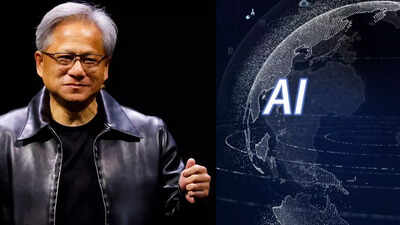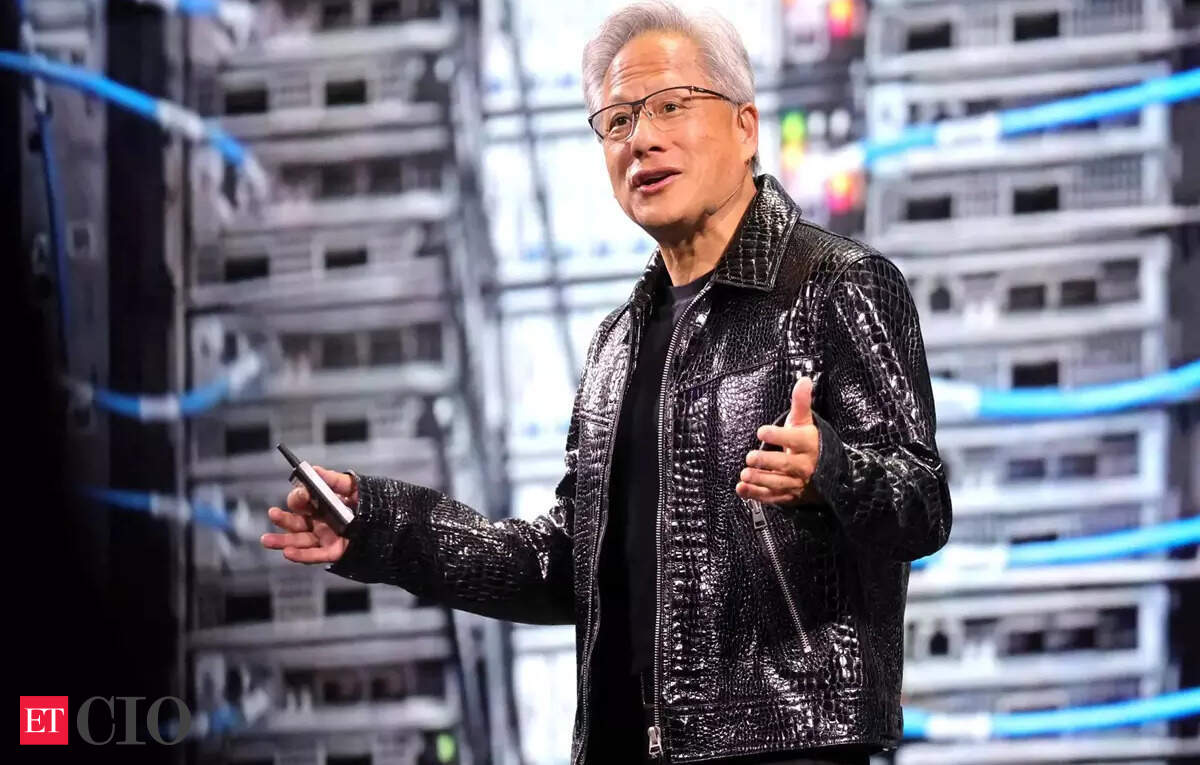Nvidia CEO Jensen Huang reveals how students should use AI for career success: 'How can I use AI to do my job better?' | - The Times of India

Nvidia CEO Jensen Huang reveals how students should use AI for career success
As artificial intelligence (AI) continues to reshape industries worldwide, tech leaders are increasingly emphasizing the importance of mastering this transformative technology.
Nvidia CEO Jensen Huang
, one of the most influential figures in the AI sector, recently shared his perspective on how the next generation of professionals can leverage AI to build successful careers.Speaking on the "Huge Conversations" podcast with Cleo Abram in January 2025, Huang highlighted the significance of understanding and effectively interacting with AI tools like ChatGPT, Gemini Pro, and Grok. His advice reflects the growing recognition that AI skills will be essential for future careers, regardless of the industry.
During the podcast, Huang stressed that learning to work with AI is critical for anyone entering the job market today. He compared the process of interacting with AI to the art of asking the right questions, emphasizing that effective communication with AI requires a specific set of skills.
"The first thing I would do is to learn AI," Huang stated, adding that prompting AI is similar to being a skilled questioner. "You can't just randomly ask a bunch of questions. Asking AI to be an assistant to you requires some expertise and artistry of how to prompt it."Huang’s comments come at a time when the global job market is rapidly evolving, with AI playing an increasingly significant role in various sectors, from finance and healthcare to education and manufacturing. As businesses integrate AI into their operations, the demand for professionals who can effectively leverage this technology is expected to surge.
To help aspiring professionals master this skill, Huang offered practical advice on crafting effective prompts. He suggested that individuals think of AI as a highly intelligent yet context-limited assistant. Drawing on insights from AI experts like Kelly Daniel, Huang emphasized the importance of clarity and context in crafting prompts.Daniel, a prompt director at Lazarus AI, advised that users should treat AI as a smart but inexperienced child, providing it with the necessary context to generate accurate and relevant responses. She recommended breaking down complex instructions into clear, concise steps and including examples whenever possible to guide the AI’s responses.For example, instead of simply asking, "Tell me about your business," a more effective prompt might be, "Can you explain the first steps to launching an online retail business?" This approach provides the AI with a clearer framework for generating a useful response.
Huang’s emphasis on AI skills reflects broader trends in the workforce. According to LinkedIn’s 2025 Work Change report, approximately 70% of the skills used in most jobs are expected to change by 2030 due to advancements in AI and automation. Despite this, a 2024 study by the Harvard Graduate School of Education, Common Sense Media, and Hopelab found that only 11% of Americans aged 14 to 22 use generative AI tools like ChatGPT on a weekly basis.Huang noted that regardless of one’s field of study or career path, understanding how to use AI to improve job performance will become a critical advantage."If I were a student today, irrespective of whether it's for math or science or chemistry or biology — doesn't matter what field of science I'm going into or what profession — I'm going to ask myself, 'How can I use AI to do my job better?'" Huang remarked.
As AI technology continues to evolve, the ability to effectively interact with these systems will likely become a fundamental skill across industries. From automating routine tasks to enhancing decision-making processes, AI has the potential to significantly boost productivity and innovation.For students and professionals looking to stay ahead in this rapidly changing landscape, Huang’s advice serves as a reminder that mastering AI is not just about learning technical skills but also about understanding how to communicate effectively with these powerful tools.As businesses increasingly rely on AI for critical functions, those who can harness this technology will be well-positioned to succeed in the emerging digital economy.








